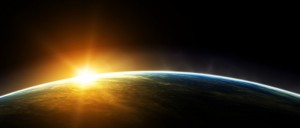Somewhere between the late 80s and the early 90s, with Clinton’s election, hope died.
The post-war era had serious issues, but the post-war era–as the civil rights movement and 70s feminism showed–was handling those issues. It was moving in the right direction. Until it didn’t, until it couldn’t handle the cascade of problems from the rise of oil prices.
In Britain, Thatcher got into power; America got Reagan. They were opposed by people who preferred to try and fix the older world, and those people lost. So there came the third way, which said: “If you can’t beat them, join them!” Clinton, Blair, and all the various folks like them wanted to do Thacherism and Reaganism but with less cruelty.
That couldn’t, and wouldn’t, work. Clinton set the stage for large chunks of the financial crisis: He gutted welfare, set up truly cruel standards for incarceration which gutted poor black communities especially, and hurt everyone else who was poor, even if less.
Blair, his British counterpart, was onside with Iraq, and blah, blah, blah.
None of them did anything about climate change worth speaking of. Their solution to pollution in the developed world was to ship the most polluting industries to developing countries, mostly notably China, and pollution there is as bad as it ever was in the first world.
Meanwhile, as we all know, they pursued a raft of policies whose effect was to funnel money to the rich, gutting the middle class over time (though the middle class benefited at first) and impoverishing many. This created oligarchical power structures throughout the west, abetted by technocrats insulated from control by elected politicians.
The point here is that the trends were mostly bad. Those few good trends, such as improvements in parts of the developing world were not a result of neoliberalism (China used mercantile policies to industrialize), and in fact, as Ha Joon shows in Bad Samaritans, growth in the developing world was slower in the neoliberal era than in the post-war era.
We have been driving ourselves towards, not disaster, but catastrophe, and not one catastrophe, but many.
So, people thought I was pessimistic. I wasn’t. I never was. I was realistic. Because it’s government and corporate policy, it’s the policy of all of our elites, to do things which would have forseeable bad consequences. That’s been policy and they’ve been very determined to stick with it.
So, there has been no room for what some people mistake as optimism. Hope. The only hope was that at some point this would change. As long as we kept electing people like Clinton or Obama, there could be no hope because those in power haven’t wanted to change the way the world is run. They don’t intend to do anything which would avoid catastrophe.
That is just how it’s been.
So now everyone is running around like chickens with their heads cut off, and I’m the calm one.
Because there is now reason for hope. Large masses of people are now willing to vote for politicians who want to do the right thing. It is too late to avoid much of the consequences of what we have done. It is simply too late. We have methane release in the arctic, we have a great species die-off, and it’s too late.
But it is not too late to mitigate. As the first rule of holes states, “When you find yourself in a hole, first, stop digging.”
We haven’t even done that yet, really. There’s a small amount as solar becomes cheaper than coal, something which should have happened 20 years ago through government intervention, but it’s too late.
However, with Sanders and Corbyn’s near successes, with the fact that so many would consider voting for them, with Melenchon in France coming so close, there is now reason to hope that we finally have an electorate willing to consider actual change to do the necessary things.
This was not true in the past. People like Sanders and Corbyn were not taken seriously as national candidates. The idea was laughable.
So this is hope; a bright, shining, slender thing.
We have it now. And yet people are running around like the sky is falling. The only reason they are doing so is that most of them didn’t understand that the decisions which caused all the problems we’re having today were taken and reaffirmed for decades. If you knew where they were going (and it wasn’t hard to), you just had to look and not flinch. If you were able to do this, nothing that is happening today, nothing, is surprising–in general terms.
The only thing that is interesting is that a large number of people, and especially young people, are turning away from doing the wrong thing, and showing openness to change. This creates a crossroads: They may choose something worse, or something better. I think they’ll take something better when offered; we saw that with Corbyn, and polls now show he’d win an election held today.
Of course, they’ll also take something worse if it means change from the status quo. We’ve seen that.
But they are willing to Change, and that means there is Hope.
So, the sky is creaking, but that’s already been predetermined and running around screaming about in affected surprise is pathetic.
Meanwhile, we may be able to begin reducing the worst of what is to come, rather than continually trying to make it worse.
And that, my friends, is reason for hope.
The results of the work I do, like this article, are free, but food isn’t, so if you value my work, please DONATE or SUBSCRIBE.

 I have been writing a long time. For most of that time, people said I was “pessimistic” and
I have been writing a long time. For most of that time, people said I was “pessimistic” and